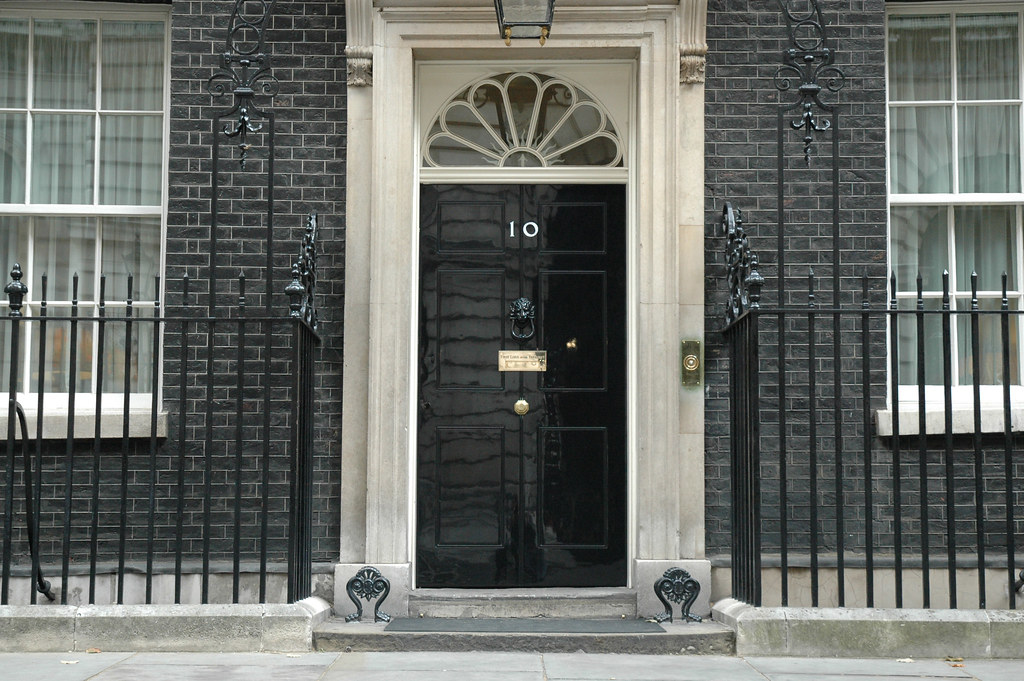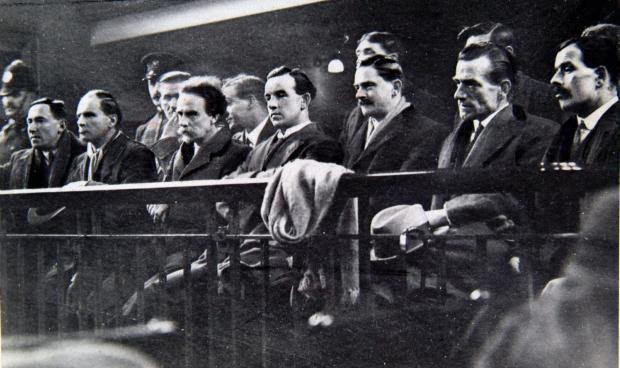Content warning: Racist violence and rhetoric
Covid-19 has stress-tested the very foundations of society by forcing us to reconsider what’s important, and has finally dragged some uncomfortable questions around fairness and the status quo to the surface. From the rate of statutory sick pay, to whether many jobs could actually just be done from home, these are conversations that have existed within activist circles for years, but overlooked or brushed aside by the mainstream. Another area now under examination – and one that could see a real paradigm shift – is the way Britain thinks about immigrants and their descendants.
Immigrants – and their descendants – have been a prominent part of the response to Covid-19, and make up the majority of the medical professionals who have died from the virus. As a result, many of the strongest advocates for anti-immigration policies have softened their public positions on the issue, or changed them entirely. Among those who have publicly flip-flopped is professional contrarian, Piers Morgan. Having previously written that ‘The only way to defeat this Caliphate of Cowardice is to slam our open immigration doors shut’, a shift to arguing that we should ‘not continue to have hysterical debates about who we should let into the country’ is nothing if not a jarring.
This sort of U-turn was even mirrored in government to a lesser extent. Boris Johnson made a point of thanking two of his nurses who are foreign nationals, “Jenny from New Zealand” and “Luis from Portugal,” after his recovery from Covid-19, drawing significance to the variety of nationalities that come together to keep the country safe.
That said, there has justifiably been a lot of skepticism surrounding these changes of heart. Many have pointed out that the government is still pushing through with a severe points-based system that would exclude large swathes of essential workers. Then there was the embarrassing flip flop on the NHS surcharge for migrant healthcare workers, demonstrating key areas where the government is out of step with the public mood. Whether these changes are sincere or performative, they’re still a significant reflection of how the Covid-19 crisis is affecting the way immigration is discussed.
Given the inconsistencies of behaviour and rhetoric, I would personally exercise caution in predicting any significant improvement due to this crisis. However, to try to make sense of what this pandemic means for attitudes to immigration in Britain we don’t have to just speculate. We can look back to previous examples of crises in the UK and look at how that intersected with migrant acceptance.
The Great War
A lot of the words being used to discuss Covid-19 echoes the language employed in wartime Britain, complete with a ‘frontline’ and ‘sacrifice’. The similarities between now and a Britain at war extend beyond the language, though. There is also a strong link between the nation’s need for migrants.
In the first world war, 140,000 Indians were put on the Western Front by Britain and took heavy losses - “the average Indian battalion had 764 men when it landed; by early November the 47th Sikhs had only 385 men fit for duty”. Several Indians were amongst the most notable soldiers in the war, including the writer of one of the longest diaries in the Great War – Amar Singh. Beyond Britain, most European states drew from their empires in some way, whether it was for troops, manual labour or supplies
However, their involvement wasn’t without backlash. In the months after the war there were a series of race riots across much of the Western world. These were based on racist sentiments triggered by POCs making inroads into general life – especially in port cities. One such city was Liverpool, the site of some of the race riots of 1919. As the Black population of Liverpool increased, and the number of interracial relationships rose, tensions between Black and White Liverpudlians skyrocketed. These tensions exploded when a predominantly Black boarding house was raided by police on 5 June 1919 in connection with an interracial fight between two groups of men earlier that day. As a result, Charles Wootton, a 24-year old Bermudan Seafarer who wasn’t involved in the fighting, was chased into the streets, where he was then lynched by a white mob at the Mersey whilst the police watched.
This triggered days of mobs hunting down Black people/families, attacking them and driving them from their homes. Similar events occurred across the United Kingdom, from the east end of London to Cardiff, to Glasgow.
This on-the-ground action was mirrored (if not incited by) by the increasing popularity of eugenics – a pseudoscience that seeks to breed ‘undesirable’ traits out of humanity, which led to government-sanctioned/government-enforced attacks on particular groups across the Western World well into the 20th century. These ideas were influential in high society, with Winston Churchill and Theodore Roosevelt voicing keen support.
Adding to this racist rhetoric, public figures like E.D Morel (journalist and politician) created false narratives about there being widespread sexual assault of German Women by African soldiers during the occupation of the Rhine – known in the English speaking world as the ‘Black Horror on the Rhine’.
These immigrants were crucial to the war efforts, yet as soon as their presence stopped being essential, they became scapegoats and targets for vicious racism.
World War II
Just over two decades later Britain was at war once more. The same colonial subjects who were victims of the racist backlash were called upon again to fill gaps, but in even greater numbers. Over two million Indian soldiers were on the front lines – over 10 times more than the first world war, with 87,000 of them dying in combat. Behind the front lines, Africans were frequently used as a labour force in terms of manufacturing, and military bases were frequently placed in North African nations.  Indian Forces in North Africa
Indian Forces in North Africa
In the decades after the war ended, thousands of predominantly Caribbean immigrants were invited to Britain. This ‘Windrush Generation’ was fundamental to the formation of a post-war Britain and the NHS, bolstering a workforce left devastated by war – including nursing, public transport, manufacturing and construction. Britain relied on immigrants to solve the issues created by this drastic socio-economic change, and buoy up a crippled economy.
Despite their necessity – and the fact that they came across on British passports – all too quickly the familiar anti-immigration narrative started. There was resistance across the political spectrum, including Labour leader Clement Attlee who tried to prevent the HMS Windrush from departing in 1948, and Churchill who in 1951 proposed the campaign slogan ‘Keep England White’.
Racism in post-war Britain was epitomised by Enoch Powell’s infamous 1968 Rivers of Blood speech, where he claims that immigrants will destabilise and eventually destroy England. Whilst he was definitely on the fringes, and largely denounced for this speech, he was expressing a feeling which very much existed amongst many British people. This energy formed organisations such as the original British National Party and National Front which persistently terrorised POC communities for the ensuing decades.
These attitudes aren’t just historic; large numbers of the Windrush generation have been wrongfully deported in the past few years. These deportations were the result of consecutive governments deciding to destroy immigration paperwork, and the policy of a ‘hostile environment’ spearheaded by Theresa May. Under her guidance, the Home Office began to make it increasingly difficult for people to enter the UK as well as aggressively pursuing deportations – even when they contravened UK immigration law. Lives were ruined, and at least 11 of the people wrongfully deported ended up dying after their deportations.
To this day, there has been minimal accountability for these actions, and Amber Rudd – who resigned from her post as a result of misleading the home affairs select committee in relation to the scandal – was back in the cabinet six months later. Furthermore, the Windrush Report (released this March), was largely ignored by politicians and the press in the midst of Covid-19, and most people affected by the scandal haven’t received compensation.
Enlightened times?
In these cases, we can see that a pattern emerges. A crisis occurs, Britain desperately calls out to immigrants for help, getting them to fill essential roles in the labour force, before demeaning and erasing them. We can see echoes of these historical patterns in the responses to this ongoing crisis. The British cultural narrative of these world wars is highly glossed, and neglects the crucial role of soldiers from the colonies, reinforced by Hollywood epics like Dunkirk which feature no people of colour in speaking roles. Covid-19, with its wartime linguist parallels, presents a similar case of immigrants and their descendants having to fight not to be erased from the narrative. Many have raised the point that much of the conversation around care workers ignores the specific contributions of immigrants, or outright excludes them. This is even as they make up at least 44% of the medical professionals risking their lives to work against the virus and disproportionately fall victim to it.
Despite the risk of history repeating itself, there are those who believe that there is a real potential for more positive attitudes to come from this horrific pandemic. Patrick English, Associate Lecturer of Data Analysis at the University of Exeter, writes that anti-immigration sentiment amongst the general public has been decreasing since about 2013, with the “UK currently seeing a dramatic warming of aggregate attitudes toward immigrants on the whole”. Speaking to Voice, he said that ‘the contribution of immigrants (not just in the healthcare system) might have some important impacts on public opposition for policies like NHS charges for immigrants, income thresholds for immigrants (which currently would exclude a lot of nurses), caps or targets for reducing immigration.’
Nonetheless, even if we do see a sincere change in attitudes as a result of Covid-19, there is still the risk that this could be limited, and predicated on a Good Immigrant narrative – the idea that an immigrant can only be treated well if they conform to an impossibly high standard. This requires a slavish work ethic, like working in the NHS during a pandemic, or picking fruit in tough conditions. Fitting into this narrative also requires conformity to the often ambiguously defined ‘British values’, which are frequently weaponised against immigrant communities. The final requirement of this narrative is for these ‘good immigrants’ to remain silent about any injustice they face.
 By Alex Proimos from Sydney, Australia - Fruit Picking, Oxnard California, CC BY 2.0, https://commons.wikimedia.org/w/index.php?curid=25648929
By Alex Proimos from Sydney, Australia - Fruit Picking, Oxnard California, CC BY 2.0, https://commons.wikimedia.org/w/index.php?curid=25648929
There’s also the problem that public acceptance of immigrants could be fleeting, as repeatedly seen throughout the historical examples already mentioned in this article. That is a concern shared by English.
“Thinking back to what has happened previously after financial crises, there is a chance that if a strong 'austerity narrative' builds again after the current crisis, and we talk about 'paying off' the measures put in place now to a great extent, then appreciation and sympathy for the contribution of immigrants and a desire to protect their financial/employment interests might be lost (or at least become faded) in the noise.”
It’s impossible to tell what effect this pandemic will have on our society and its attitudes towards those it deems as ‘other’. After all, history isn’t entirely cyclical and the conditions of this crisis differ from any other before this. Speaking to Voice, Brunel University lecturer in British Politics Dr Stuart Fox, perfectly captured this uncertainty when he said: “it's difficult to assess how crises usually affect attitudes towards immigration because they are all different. The refugee crisis that hit Europe was far more directly related to attitudes towards immigration, for example, than the financial crisis of 2008”.
Despite the uncertainty and the historic evidence, I still want to believe that Covid-19 might bring about a new normal in the treatment of immigrants post-crisis, and we can all have a part to play in that. To use a phrase coined by Arundhati Roy, the pandemic is a portal. Where that portal leads is something we the British people have the power to decide.










0 Comments